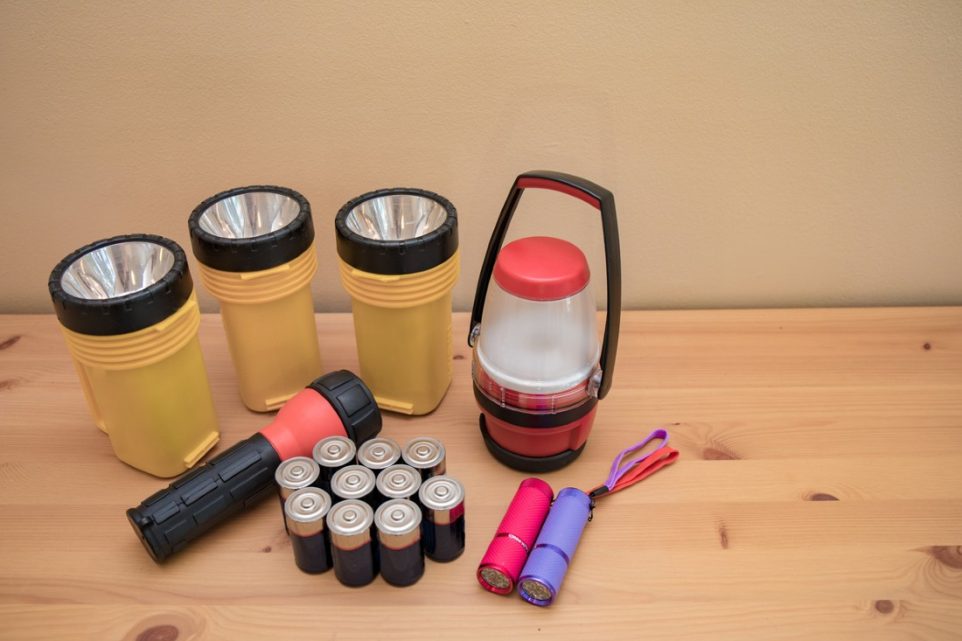How To Plan for and Handle a Florida Power Outage

Experiencing a power outage is almost inevitable if you live in Florida. While they can be disruptive and inconvenient, they usually don’t last too long. However, it’s always best to be prepared for worst-case scenarios that may require prolonged periods without power. In this post, we’ll provide tips on how to prepare for and handle a Florida power outage.
We’ll go over the best ways to stay safe if the lights go out, as well as the best ways to store food and plan ahead for a power outage. With this guide, you’ll be ready for whatever the Sunshine State throws your way.
Necessary Supplies and Preparation
Gather and Organize Supplies
Before a power outage happens, it is important to have essential supplies at the ready. This should include flashlights, a battery-powered or solar generator, a camp stove for cooking, a first aid kit, blankets to keep warm, batteries, extra food and water, and any medications that may be needed. These supplies should be properly stored in an easily accessible location so they are quickly available when the power goes out.
Consider Alternative Sources of Power
After gathering supplies, you should consider using alternative sources of power like a battery-powered generator or solar generator to help run essential appliances during an outage. These solutions should be set up before the outage strikes and should be maintained and tested regularly to make sure they are functioning properly.
Create a Plan for Communication
In case of an extended outage, it is also important to create a plan for communication among family members. This plan should include both digital methods (like texting) and analog ones (like landline phones or HAM radio). It is also important to have a designated meeting place in case family members get separated, or the home becomes unsafe due to flooding or structural damage caused by the storm.
During a Power Outage
Know the Immediate Safety Risks
Stay aware of your surroundings even after the lights go out. Be careful about using candles as an alternative source of light if you can’t use battery-powered lights. Also, watch out for wet floors or other dangerous conditions that could lead to slips or falls while navigating without electricity.
Utilize Backup Power Sources
If you have access to a solar generator or battery-powered generator, use it wisely during the outage. Make sure all appliances are turned off except for necessary ones like refrigerators, fans, and lights that need to be on while running these sources of alternative power. Make sure you read all instructions carefully before using your backup power source during an outage.
Take Care of Yourself and Your Family
Take extra care when doing activities that require more attention than usual in the dark, like making food or changing diapers for an infant. Keep yourself hydrated and fed with the extra food and water stored in preparation for the outage, and practice good hygiene if you have limited access to running water throughout the period of no electricity.
After a Power Outage
Report the Outage
After the power has returned and any potential dangers have been taken care of, contact your utility company immediately to report the outage and any damage noticed. The company should address it swiftly and take proper safety precautions moving forward as well as provide customer service focused on your specific needs with your unique situation.
Check for Safety Hazards
When inspecting your property after an outage, look for any potential electrical hazards caused by downed lines, spark plugs, flood waters, etc., as well as debris cleanup that may need attention due to extreme weather conditions.
Replenish Emergency Items
Keep in mind that after an outage, you will need to replenish your supplies of certain items like batteries or extra food. Make sure you restock on these items sooner rather than later so you’re prepared in case another emergency event occurs in the future.
Decades of Combined Expertise
Best Buy Guidebook is a culmination of online publishing lessons learned. From SEO to paid ads, our team has experienced the highest of highs and the lowest of lows. Our goal now is simple: Arm readers with the most information possible.
